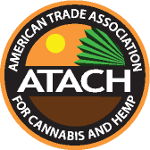Since the 2018 Farm Bill, Pennsylvania has taken a permissive approach to synthetic cannabinoids like Delta-8 THC, allowing these products within a largely unregulated, gray market. This approach means that while hemp-derived intoxicants are permitted, they lack specific state regulations, resulting in minimal consumer protections.
1. State’s Classification Regarding Hemp Intoxicants
Synthetic cannabinoids, including Delta-8 THC, are permitted, but there is no dedicated regulatory structure overseeing their sale or distribution.These products are legally sold without state-imposed controls, relying instead on federal Delta-9 THC limits, resulting in a permissive regulatory environment.
2. THC Potency Limits Per Serving or Package
Pennsylvania has not set specific THC potency limits per serving or per package for synthetic cannabinoids. This absence of limits allows products of varying strengths on the market, provided they meet the federal Delta-9 THC threshold.
3. Public Health Measures
Pennsylvania lacks targeted public health measures for synthetic cannabinoids, such as age restrictions, child-resistant packaging, or labeling requirements. This leaves consumers with limited safety protections specific to synthetic THC products.
4. Primary Enforcement Mechanisms Against Unregulated or Illegal Sales
Due to its gray market classification, Pennsylvania has limited enforcement mechanisms targeting synthetic THC. Local law enforcement generally intervenes only if products exceed federal THC limits, with no targeted state-level monitoring or regulation of these products.
5. Consumer Protection Measures for Product Safety, Testing Standards, and Recalls
Pennsylvania does not mandate product testing for synthetic THC potency or contaminants, nor are there protocols for product recalls. This limited consumer protection framework leaves quality assurance gaps for synthetic cannabinoids.
6. Advertising or Marketing Restrictions
There are no advertising restrictions specific to synthetic THC in Pennsylvania, allowing for unrestricted marketing, including potentially child-appealing packaging. This lack of oversight increases the risk of accidental exposure among younger consumers.
7. Responsible State Agencies
The Pennsylvania Department of Agriculture oversees hemp cultivation and processing but does not regulate synthetic cannabinoids. Due to the unregulated status, oversight of synthetic THC remains limited, with primary guidelines defaulting to federal standards.
